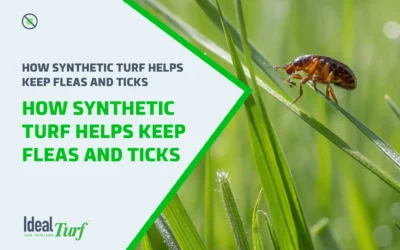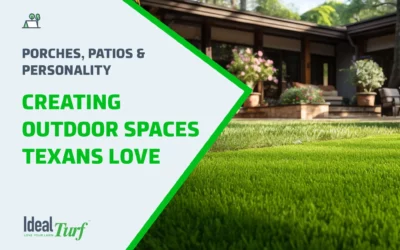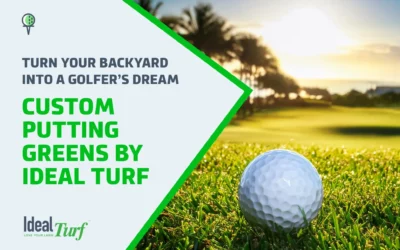Artificial Grass FAQs
Frequently Asked Questions About Artificial Grass & Synthetic Turf
Artificial Grass Frequently Asked Questions
We now have an FAQ list that we hope will help
you answer some of the more common ones.
What are the Most Common Uses for Artificial Grass?
Artificial Grass has been steadily increasing in popularity over the past few years. It provides a simple and long-lasting solution for lowering water bills and increasing your home’s value.
Below are the most common uses of artificial grass and synthetic turf:
How Much Does Artificial Grass Cost to Install?
The cost of installing artificial grass in your home or business depends on a number of factors. Generally speaking, pricing is based on square footage, the type of turf used, and the other materials used during the installation. With so many variables affecting artificial grass installation costs, providing a fixed “Cost” isn’t possible, and would be doing you a disservice.
To get a free quote, you can Contact Us anytime.
Why Choose an Artificial Grass Lawn?
Synthetic grass lawns allow you to have a pristine yard, without all of the hassles that a normal sod lawn requires. No mowing, no chemicals, no weeds and it’s weather resistant. It’s great for company and it’s durability is unmatched when it comes to high foot traffic.
Does Artificial Grass Fade?
Quality synthetic turf includes UV inhibitors that are added to the fibers to inhibit fading. While a very small amount of fading can still occur over a long period of time, reputable artificial grass installation companies will offer a warranty that covers potential fading. For example, at Ideal Turf, we offer a 15-year warranty against fading.
Does Artificial Grass Need Water?
One of the primary reasons that so many homeowners, businesses, schools and sports teams choose to switch from natural grass to artificial grass is to reduce water costs. Natural grass and sports fields require constant maintenance and thousands of gallons of water.
This, however, does not mean that synthetic turf lawns are a no-water option. For the most part, your artificial grass does not need water. That said, there are times that you may need or want to spray your artificial grass lawn.
For example, rinsing off dust and debris is as simple as a quick spray with a garden hose. This will also depend on where you live and how dusty it is. Most of our customers spray down their turf once or twice a month to keep it clean and looking vibrant, but if you’re in a dusty area you may need to spray your turf more often.
If you have pet turf, after removing solid waste, using water to hose down areas that your pets use will help to clean your artificial grass and help prevent the build up of odors.
Here in Texas, summers are hot. Some people like to cool off their artificial grass by spraying it with a garden hose before their children or pets play on it with bare feet or paws. For sports fields, some schools and organizations spray their synthetic turf prior to games and practices to help reduce the potential for injuries, which makes this another way in which some artificial grass surfaces may occasionally require water.
Artificial lawns can save you up to 56,000 gallons of water per year.
What is the Lifespan of Artificial Grass?
The lifespan of your synthetic turf lawn will depend on several factors, including the quality of the turf product, the quality of the installation and the amount of traffic it endures over the years. Depending on how these factors come together and the amount of proper maintenance it receives, you can generally expect manufactured grass to last somewhere between 10 and 20 years. You should see a higher-quality turf lawn last closer to 20 years.
Do Your Turf Products Contain Lead or Other Heavy Metals?
No. Our synthetic turf products contain no detectable traces of lead or other RCRA hazardous waste heavy metals.
What is the Best Artificial Grass for My Project?
It’s often assumed that all turf is the same or a limited variety is available. This is not true, and the Ideal Turf team can show you all your options and help you in selecting the best artificial grass for your project. Very low activity areas need to address quality, density, and aesthetics whereas areas with mid-level activity or more should have a thatch product with a higher density turf installed. A high-density, thatch-based product significantly recovers better during activity and grooming, as well as a high-quality yarn.
What Maintenance Does Artificial Turf Require?
Synthetic turf requires minimal maintenance. You’ll no longer have to mow, weed eat, re-seed, fertilize, spray chemicals, kill ants and pests or water nearly as much. However, with most big investments, in order to keep it performing at it’s best, you will need to do some maintenance such as spray your turf off every once in a while, tend to spills and pet feces immediately and brush your turf every few months to keep it from dipping or flattening due to heavy foot traffic.
How Does Synthetic Turf Affect Property Value?
When you go to sell your home, an artificial grass lawn can increase curb appeal and becomes vital to your selling success.
Investing in artificial turf can improve your property value tremendously. According to GE Finance, 100 to 200 percent of any investment in an outdoor landscape will go directly toward the value of your home.
How Well Does Artificial Grass Drain?
Optimal draining is one of the best benefits of synthetic grass. You won’t have to worry about a game getting rained out or deep puddles anymore. Most of our artificial grass products are equipped with our proprietary artificial turf drainage, the “Cascade Backing System” that’s 100% permeable to ensure that your yard drains effectively.
How Do I Clean Artificial Turf?
It’s Easy! To clean artificial turf, Simply rinse with water as needed. With pets, pick up solid waste and the residue can be sprayed clean. Rinse as frequently as needed to avoid odors which are a build-up of bacterial spores. Ideal Turf uses a “Rounded Silica” infill, which allows water and pet urine to flow right past limiting bacteria and odor.
Can Artificial Grass be Stained?
Accidents may happen, but rest assured that spills such as oil spills or paint spills are not permanent on synthetic grass. In order to keep your synthetic grass looking its best though, clean up spills immediately by spraying or rinsing them off.
Is Artificial Grass Dog & Pet-Friendly?
Short Answer: YES!
Most of our customers are looking for fake grass for dogs. We tell them synthetic grass is perfect for pets. With optimal drainage, urine quickly drains, leaving no odors behind. Pet droppings are also easily maintained on synthetic turf – just pick them up or spray them off! Synthetic grass is also very durable so your dogs would have a difficult time trying to dig or chew it up. Another benefit is that it doesn’t create mud puddles, so no more muddy paws being tracked through your house.


